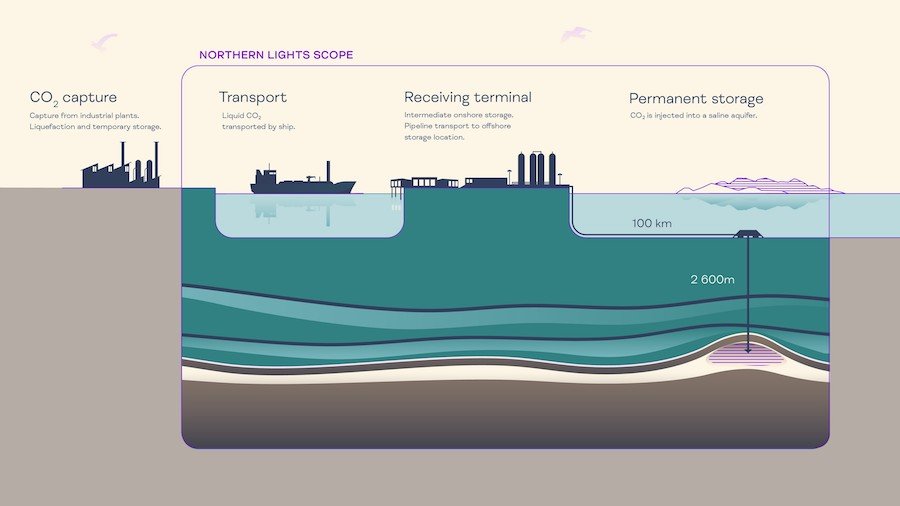Norway to Launch Europe’s First Cross-Border Carbon Transport and Storage Project

Shipping is obviously an important component of that and will play a major role in decarbonizing Europe in the future.
The Norwegian government is financing most of the Longship project, intending to launch the first open access, full value chain CCS (Carbon Capture and Storage) model in the world. Northern Lights is the company in charge of the transportation and storage part of the project.
What this company will do is use newly-designed ships to transport CO2 from different countries where it’s been captured to a designated storage site in Norway. Recently, Northern Lights reached a milestone by signing what it claims to be the first commercial agreement for cross-border CO2 transportation and storage in the world.
Based on this pioneering agreement, Northern Lights will transport the CO2 that’s captured from Yara Sluiskil, a fertilizer and ammonia plant, from the Netherlands to Norway. A special ship will take the CO2 from the capture site in the Netherlands to a terminal in western Norway. From there, the carbon will be transported via pipeline to a reservoir that’s located 2,600 meters (8,530 feet) under the seabed.
According to the two partners, this will be the world’s first agreement for the cross-border transportation and storage of CO2. More than 800,000 tons of pure CO2 will first be captured at the location in the Netherlands. After being compressed and liquefied, it will then be transported to Norway. The receiving terminal is in the municipality of Oeygarden, in western Norway. Finally, the carbon will be injected and permanently stored off the coast of Oeygarden.
Yara will become the first commercial partner in this ambitious project and is expected to be followed by many others. The first cross-border CO2 shipping for storage is set to take place in 2025. Until then, Northern Lights’ infrastructure is still under construction.
Verwandte Nachrichten
